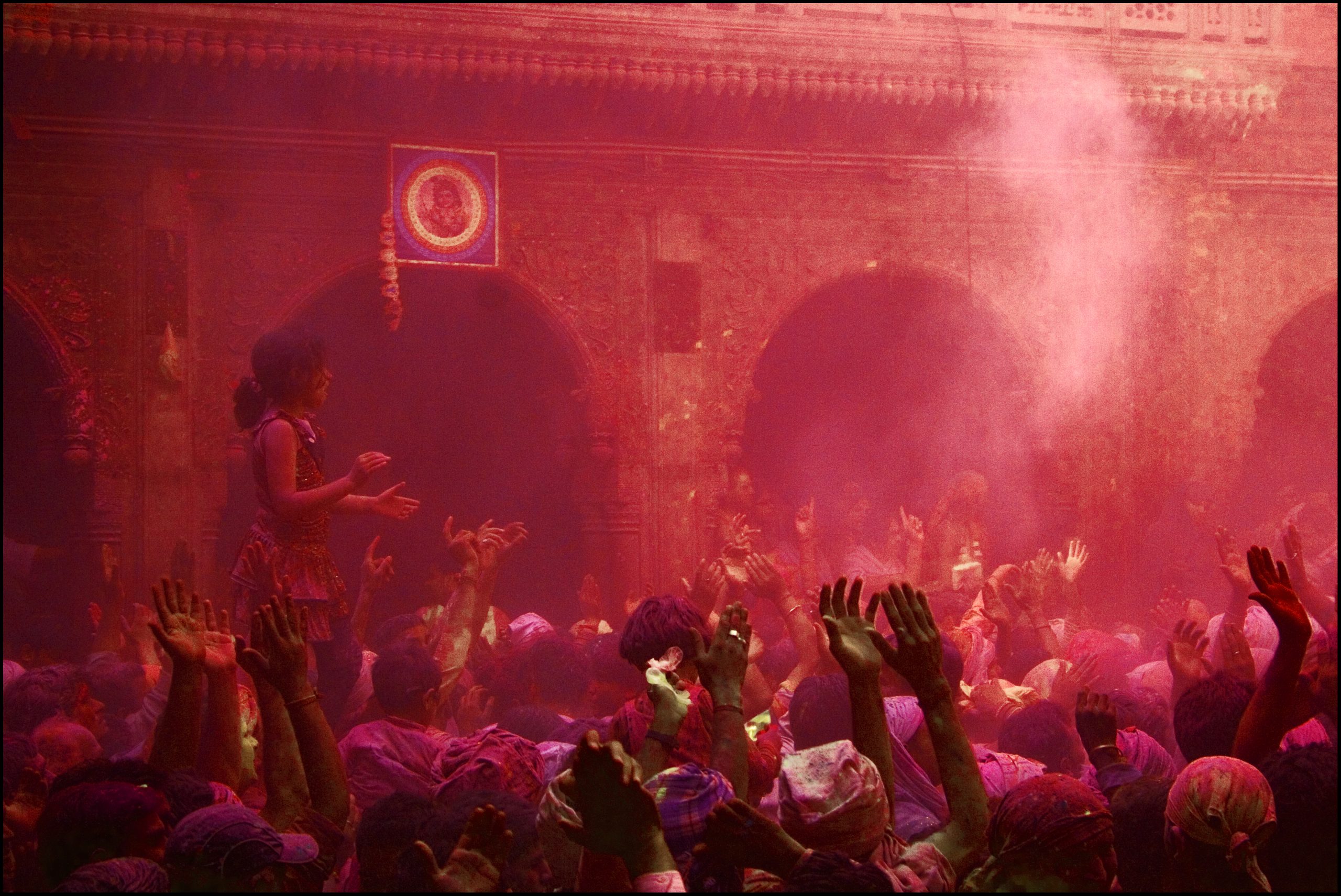Ekadasi is a fortnightly tithi that falls on the eleventh day of every fortnight, as per Hindu calendar. ‘Ekadasi’ is a Sanskrit word which means Eleven. There are two Ekadasis in a month, due to the presence of two pakshas, namely Shukla paksha and Krishna paksha. Thus, there are twenty-four Ekadasis in a year, and in some years, there are twenty-six in the case of Adhik Maas.
Ekadasi
In Sanatan dharma, Ekadasi holds a great importance. As per the Hindu lunar calendar, the eleventh day after every Poornima and Amavasya is Ekadasi. The eleventh day after Poornima is called Krishna paksha and the eleventh day after Amavasya is called Shukla Ppaksha. Ekadasi festival and vrat is devoted to Bhagawan Vishnu. Ekadasi aids in cleaning our body, repairing and rejuvenating it, while observing the fast for the whole day of Ekadasi. It is a 48-hour long ritual, as it starts on the eve of the previous day and is broken after sunrise on the day after Ekadasi. Devotees eat in the afternoon before the Ekadasi Day to make sure that there is no left-over food in the stomach on the main day. The dates of Ekadasi vrat vary according to the different followers of the Vaishnav community and also depends on the position of the moon. Usually, there are 24 Ekadasis in a year, with two in each month, except for some years, in which there are 26. Each Ekadasi is called by a different name and has a different katha corresponding to a special purpose. Following are the Ekadasi names and respective purposes.
Paush Maas:
- Saphala Ekadasi in Krishna Paksha – Destroy sufferings.
- Putrada Ekadasi in Shukla Paksha – Desire for a son
Magha Maas:
- Shattila Ekadasi in Krishna Paksha – Getting rid of misfortunes
- Jaya Ekadasi in Shukla Paksha – Happiness and peace
Phalgun Maas:
- Vijaya Ekadasi in Krishna Paksha – Victory and salvation
- Amalika Ekadasi in Shukla Paksha – Cleansing the past and present sins
Chaitra Maas:
- Paapmochini Ekadasi on Krishna Paksha – Cleansing all sins of past and present
- Kamada Ekadasi in Shukla Paksha – Fulfilment of wishes
Vaisakh Maas:
- Varuthini Ekadasi in Krishna Paksha – Protection from evil
- Mohini Ekadasi in Shukla Paksha – Stability and Peace in life
Jyeshtha Maas:
- Apara Ekadasi in Krishna Paksha – Get rid of Pret yoni
- Nirjala Ekadasi in Shukla Paksha – Performing vrat without consuming water the whole duration
Asadh Maas:
- Yogini Ekadasi in Krishna Paksha – Prosperity and Joy in life
- Devshayani Ekadasi in Shukla Paksha – Praying to Vishnu in his state of Yogic sleep
Shravan Maas:
- Kamika Ekadasi in Krishna Paksha – Remove ill effects of destiny
- Shravan Ekadasi in Shukla Paksha – Desire for a son
Bhadrapada Maas:
- Aja Ekadasi in Krishna Paksha – Obtain blessings of Ma Lakshmi along with Bhagawan Vishnu
- Padma Ekadasi or Parivartini in Shukla Paksha – Offer prayers to Vishnu in Vamana avatar
Ashwin Maas:
- Indra Ekadasi in Krishna Paksha – Salvation of ancestors
- Papankusha Ekadasi in Shukla Paksha – Obtain luxuries in life
Kartik Maas:
- Rama Ekadasi in Krishna Paksha – Pray to Mata Lakshmi for her blessings
- Devutthana Ekadasi in Shukla Paksha – Praying to Vishnu after his four months of yogic sleep
Margashirsha Maas:
- Utpanna Ekadasi in Krishna Paksha – Marks the birth of Goddess Ekadasi
- Mokshada Ekadasi in Shukla Paksha – Attain liberation after death
DEITIES ASSOCIATED WITH THE FESTIVAL:
Ekadasi festival and vrat is associated with the worship of Bhagawan Vishnu. Mata Lakshmi is worshiped along with him on certain Ekadasis.
ORIGIN AND SIGNIFICANCE:
Hindus all over the world perform Ekadasi vrat, by fasting and reciting mantras and singing kirtan/bhajans. As mentioned in Padma Purana, Bhagawan Vishnu, once had a fight with Asur Muran and moved to a cave to take some rest. While resting, he made a weapon to kill Muran. While Bhagawan Vishnu was sleeping and taking rest Muran entered inside the cave and tried to kill him. Just then, a female power emitted out of Bhagawan Vishnu and killed asur Muran. Bhagawan Vishnu got impressed by her devotion and blessed her with a favour/boon. Maa Ekadasi asked Bhagawan Vishnu to give salvation to all those who observe fast on Ekadasi and bless them with peace, prosperity and success in life. Bhagawan Vishnu granted her the desired boon and promised her that all who observe vrat on Ekadasi will enter Vaikuntha or heaven after death. Thus, this day is celebrated with great devotion by the devotees all over the world.
A spiritual angle of Ekadasi is that asur Muran represents worldly pleasures and when one gets over the worldly pleasures, one attains salvation. Thus Ekadasi is also observed to make people refrain from lust, greed and negative pleasures.
It is also believed that on this day, Krishna had a conversation with Arjun in Kurukshetra, and so this day is also observed as a day of enlightenment.
According to Rigveda, the Sun is also called ‘Atamakaraka’, meaning the soul of man and universe. It is said that on this day, the Sun and the Moon hold some special position in the universe which can affect the human mind in a great positive manner. This is the only reason that meditation is observed by sadhaks and saints on this day. Fasting has been of great importance in keeping our body light when performing meditation on this special day.
A legend around Ekadasi goes that, once there was a very loving king who was respected and liked by his prajajan or people of his kingdom. He was content and happy with what he had. One night he had a very terrible dream and saw her late father suffering in hell. Scared by the dream and its consequences, the king sought help from the Brahmins of his kingdom. Brahmins asked King to consult to a maha saint Parvat Muni who instructed him to observe the Ekadasi Vrat to get rid of his father’s sins and gain moksha. Thus, from that day Ekadasi is being celebrated as a means to achieve salvation, peace and gratitude in life.
CUSTOMS, TRADITIONS AND RITUALS:
Ekadasi refers to the eleventh day after Poornima and Amavasya, and symbolizes importance of eleven senses. Observing vrat on this day is an age-old practices to keep all the eleven senses in control and attain salvation by worshiping Bhagawan Vishnu who is known as the preserver of universe. There are twenty four and all of them are observed with a different set of customs and ritual and aims in development of positive thinking.
The general rituals to be followed are:
- The vrat starts in the evening before Ekadasi.
- Observe vrat throughout the day until the sun rises on the day after Ekadasi. Eat only fruits, milk, and curd.
- Start your day by chanting the Vishnu mantra.
- Engage in human welfare activities and spend more time in offering prayers to Bhagawan Vishnu.
Rice is strictly not consumed on Ekadasi, scientifically as the water content of rice is very high it creates a repulsive force with the moon that results in distraction of mind. Thus to observe peace, devotion, gratitude and to avoid lust and any other negative thoughts, consumption of rice on this day is avoided.
PUJA VIDHI AND KATHA:
- Wake up early in the morning, take a bath and start the day by chanting Bhagawan Vishnu mantra.
- Clean the place where murti of Bhagawan Vishnu has to be kept and keep a clean colourful cloth on it.
- Make a heap of grain and place kalash on it.
- Clean Bhagawan murti with clean water and place it on the platform to worship.
- Worship Vishnuji with offerings like dhoop, deep, sandalwood, fruits and flowers.
- Listen to Bhagawan katha and stay awake throughout the night reciting Shri Hari bhajans
- Next day, invite some Brahmins for Bhojan Prasadi and donate the kalash.
CELEBRATION OF EKADASI THROUGHOUT THE COUNTRY:
Celebration of Ekadasi is done in all the Vaishnava temples, all over the world. The most enthusiastic celebration of this festival is considered to occur in Shri Rangam which is said to be a place of direct opening to Vaikunth and attainment of Moksha. Tirupati temple also celebrates Ekadasi with great fervour. All the followers of Iskcon temple are said to follow and observe Ekadasi day with strict beliefs and customs and the temple is decorated in a lavish way on this day.
BENEFITS OF CELEBRATING THE FESTIVAL:
Observing fast on the day of Ekadasi helps to remove all the negatives, sins and inculcate positive thinking. Faith and belief in Bhagawan Vishnu guide us towards success and path of knowledge leading to a blissful life.




